Search Images
Browse Content (p. 1126)
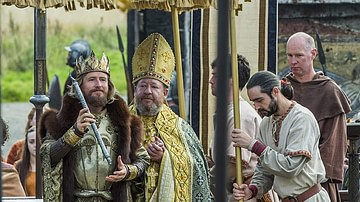
Image
Ecbert of Wessex Played by Linus Roache
Linus Roache as Ecbert, a character based on King Egbert of Wessex (r. 802-839 CE) in the TV series Vikings.
Photo by HISTORY - © 2016 The HISTORY Channel

Image
Linus Roache as King Ecbert
Linus Roache as Ecbert, a character based on King Egbert of Wessex (r. 802-839 CE) in the TV series Vikings.
Photo by Bernard Walsh/HISTORY - © 2015 The HISTORY Channel
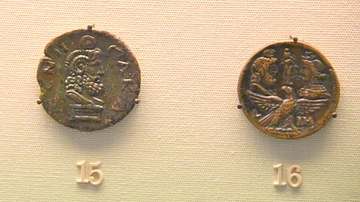
Image
Two Bronze Drachms of Hadrian
Two silver drachms of Hadrian. The drachm on the left shows Zeus Ammon on a plinth, wearing a ram's horn (c. 134-135 CE) while the one on the right shows busts of Serapis and Isis facing each other, with a small statue of Harpocrates and...
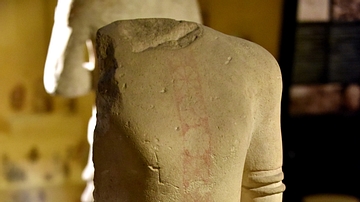
Image
Torso of a Man from Cyprus
Marble torso of a male. Cypro-Greek style. From Cyprus. Archaic period, 540-480 BCE. (Museum of Archaeology, Istanbul, Turkey).
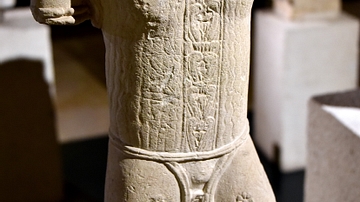
Image
Torso of a Male from Cyprus
Marble torso of a male. Neo-Cypriot style. From Cyprus. 560-520 BCE. (Museum of Archaeology, Istanbul, Turkey).
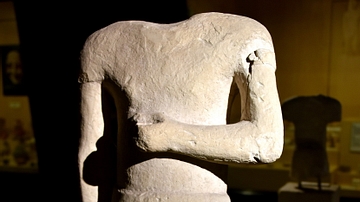
Image
Statue of a Man from Cyprus
Marble statue of a male. IInd Proto-Cypriot style. From Cyprus. Mid-6th century BCE. (Museum of Archaeology, Istanbul, Turkey).
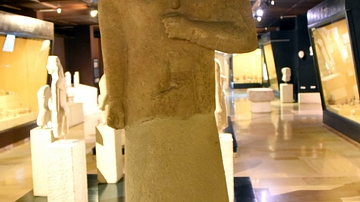
Image
Statue of a Woman from Cyprus
Marble statue of a female. IInd Proto-Cypriot style. From Cyprus. 600-560 BCE. (Museum of Archaeology, Istanbul, Turkey).
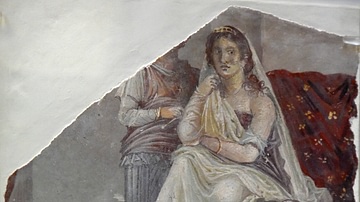
Image
Wall Painting Depicting Phaedra
This fragmentary wall-paining depicts Phaedra with an attendant, probably her nurse. The story of Phaedra's tragic love for her step-son is depicted in other early imperial paintings, often in connection with similar Greek literary themes...
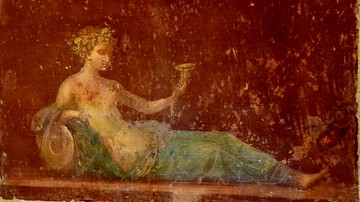
Image
Wall Painting of a Reclining Naiad
This wall-painting depicts a reclining Naiad (water-nymph), drinking from a horn. This panel adorned the "Red Room" behind the triclinium (dining room) of the villa. A companion panel from the same room is in the Museo Nazionale Archeologico...

Image
Wall Panel Depicting Bacchus and Silenus
This panel from a painted wall depicts the wine-god Bacchus and his companion, Silenus. Bacchus pours wine from a cup for the panther while Silenus plays the lyre. From a villa at Boscoreale, near Pompeii, in modern-day Italy. Roman period...